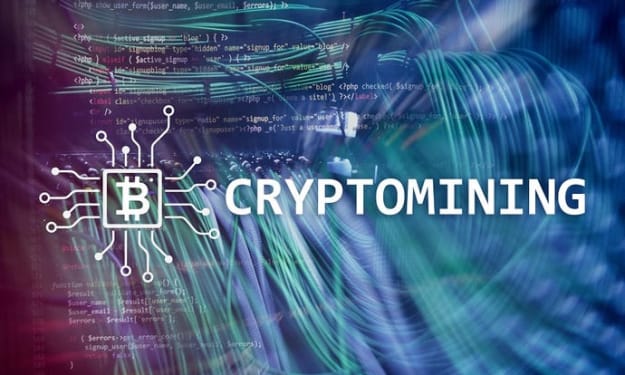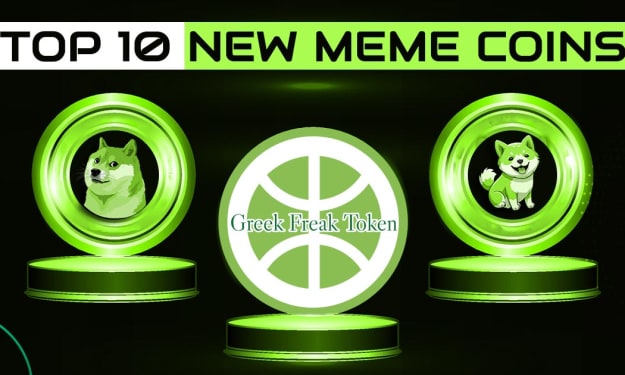Top 10 Best Decentralized Apps (DApps) for Finance, Gaming, and More
Discover the top 10 best Decentralized Apps (DApps) for finance, gaming, and other use cases. Our guide covers DApp development, benefits, examples, and more. Learn how to use blockchain DApps on various platforms and find the best DApp games and marketplaces. Start exploring the world of DApps today!

Introduction to Decentralized Applications (DApps)
Decentralized Applications (DApps) are a relatively new concept in the world of software development. Unlike traditional applications that are owned and controlled by a single entity, DApps are built on decentralized blockchain networks and are accessible to anyone with an internet connection. The decentralized nature of DApps provides a range of benefits over traditional applications, including increased security, transparency, and efficiency.
Top 10 Best Decentralized Apps (DApps) for Specific Use Cases
- Uniswap: A decentralized exchange that allows users to trade cryptocurrencies without intermediaries.
- Compound: A lending and borrowing platform that enables users to earn interest on their cryptocurrency holdings.
- Augur: A prediction market that allows users to make bets on the outcome of real-world events.
- CryptoKitties: A game that allows users to collect, breed, and trade virtual cats on the Ethereum blockchain.
- Peepeth: A social media platform that rewards users for creating quality content.
- Gnosis: A prediction market that allows users to create their own custom markets and prediction models.
- MakerDAO: A stablecoin platform that enables users to borrow and lend Dai, a stablecoin pegged to the US dollar.
- 0x: A protocol for creating and trading decentralized exchanges.
- Brave: A privacy-focused web browser that rewards users for viewing ads and supports decentralized content creators.
- Gitcoin: A platform that connects developers with open source projects and provides funding for their work.
How to Use Decentralized Apps (DApps)
Using DApps is relatively straightforward, although it may require a bit of initial setup. To use a DApp, you will need a compatible wallet that is connected to the appropriate blockchain network. Most DApps will provide instructions on how to connect your wallet and get started.
Once you have connected your wallet, you can typically use the DApp in much the same way as a traditional application. For example, if you are using a decentralized exchange like Uniswap, you can simply connect your wallet, select the cryptocurrency you wish to trade, and specify the amount you want to exchange. The exchange will then take place automatically, without the need for intermediaries or centralized authorities.
Decentralized App Development
Developing DApps requires a different skill set than traditional software development, as DApps are built on decentralized blockchain networks and use smart contracts to manage their behavior. Developers must have a good understanding of blockchain technology, as well as experience with programming languages like Solidity, which is used to write smart contracts for the Ethereum blockchain.
Fortunately, there are a number of resources available for developers who are interested in building DApps. These include development frameworks like Truffle, which simplifies the process of building and deploying DApps, as well as online communities and forums where developers can share knowledge and collaborate on projects.
Decentralized App Benefits
The rise of DApps has brought numerous benefits to users, developers, and businesses. Here are some of the key benefits:
- Decentralization: DApps are decentralized, meaning they are not controlled by a single entity or authority. This ensures that no single party has complete control over the platform, making it more secure and transparent.
- Improved Security: Due to their decentralized nature, DApps are less vulnerable to hacking attacks and data breaches. This is because the data is not stored in a central location, making it difficult for hackers to gain unauthorized access.
- Enhanced Privacy: DApps allow users to retain control over their personal data, eliminating the need for third-party intermediaries such as social media platforms or search engines.
- Lower Costs: DApps are often free or require minimal transaction fees, making them a more cost-effective option compared to traditional apps.
- Community Ownership: DApps are community-driven, meaning the development and maintenance are often carried out by a decentralized network of developers and users.
Decentralized App Examples
Here are some popular examples of DApps that have gained significant traction in the blockchain space:
- Uniswap: Uniswap is a decentralized exchange (DEX) that allows users to trade cryptocurrencies without the need for intermediaries such as banks or exchanges. It operates on the Ethereum blockchain and uses an automated market maker (AMM) system to set prices.
- Brave Browser: Brave Browser is a privacy-focused browser that blocks ads and trackers, ensuring that users' data is not collected or shared with third parties. It also has its own cryptocurrency called Basic Attention Token (BAT), which rewards users for viewing ads.
- Golem: Golem is a decentralized supercomputer that allows users to rent out their computer processing power to other users in exchange for cryptocurrency.
- Augur: Augur is a decentralized prediction market that allows users to make bets on real-world events using cryptocurrency. It uses the wisdom of the crowd to predict the outcome of events such as political elections, sports matches, and more.
- CryptoKitties: CryptoKitties is a blockchain-based game that allows users to collect, breed, and trade digital cats. Each cat is unique and has its own set of attributes, making them a valuable collectible.
Decentralized App Marketplaces
To discover new DApps and download them, users can browse various decentralized app marketplaces such as:
- State of the DApps: The State of the DApps is a directory of decentralized apps built on various blockchain platforms. It allows users to browse DApps by category and also provides information on their features, developers, and community.
- Dapp.com: Dapp.com is a DApp marketplace that allows users to browse and download DApps on various blockchains such as Ethereum, EOS, and TRON. It also provides information on DApp usage statistics and developer tools.
- Kyber Network: Kyber Network is a decentralized exchange that also features a DApp marketplace. It allows users to browse and download various DApps that operate on the Ethereum blockchain.
Conclusion
Decentralized applications (DApps) are transforming the way we interact with technology, offering a range of benefits such as improved security, privacy, and community ownership. As the blockchain space continues to grow, we can expect to see more innovative DApps that offer unique use cases and functionalities. With decentralized app marketplaces making it easier to discover and download new DApps, the adoption of this technology is likely to increase in the coming years. Whether you're a developer, a user, or a business, it's worth keeping an eye on the developments in the world of DApps.
About the Creator
TeckyBlock
Learn about blockchain technology, cryptocurrency, NFT and metaverse in here. please visit https://teckyblock.com for further information.






Comments (1)
Nice article! Great work!